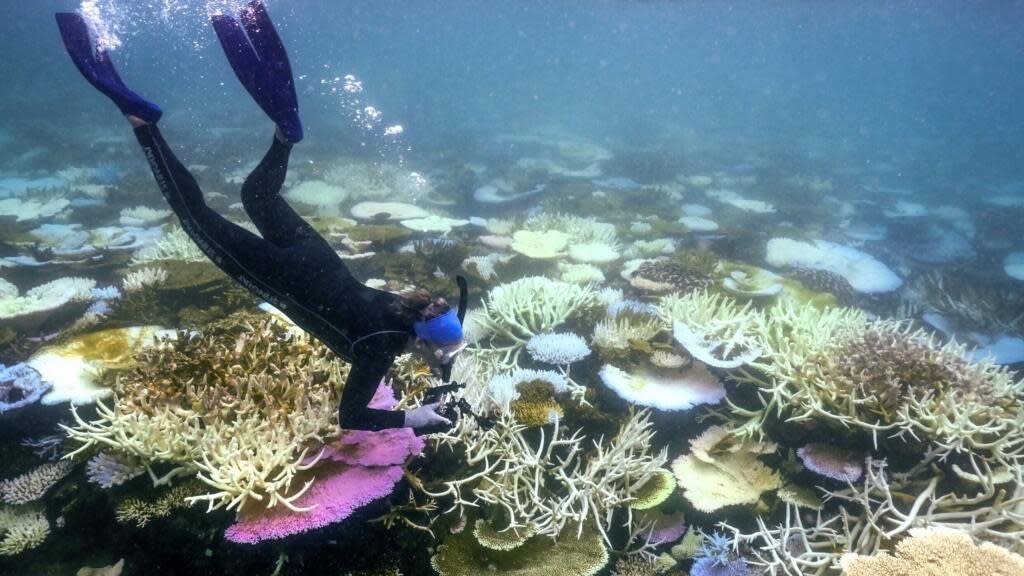Great Barrier Reef bleaching crisis 'like a bushfire underwater'

It’s too soon to tell if the heat-stressed corals of Australia’s Great Barrier Reef will survive their fifth mass bleaching in eight years, but the marine scientists who monitor the reef’s health are already despairing.
Species of coral typically resistant to bleaching are also struggling after the latest marine heatwave brought sea surface temperatures to a peak of 2.5°C above average.
Over the Australian summer, which ended in February, extreme levels of bleaching for the first time hit all three regions – northern, central and southern – of the world's largest coral reef system.
Unusually, the southern third of the reef, where waters are typically cooler, was severely damaged.
“This is definitely the worst bleaching event on record to ever hit the Great Barrier Reef,” Neil Cantin, of the Australian Institute of Marine Science, told RFI.
Cantin led a team that carried out aerial surveys in February and March along the 2,300-kilometre length of the Unesco heritage-listed site.
The results revealed that almost two-thirds had been struck.
Global catastrophe
It’s the fourth time such an event has happened globally, with more than 60 percent of corals suffering.
Read more on RFI English
Read also:
Island nations take landmark ocean protection case to UN court
Coral threatened by chemicals, including several in sunscreen, French study confirms
Oceans break record for highest temperatures five years in a row

 Yahoo News
Yahoo News 
